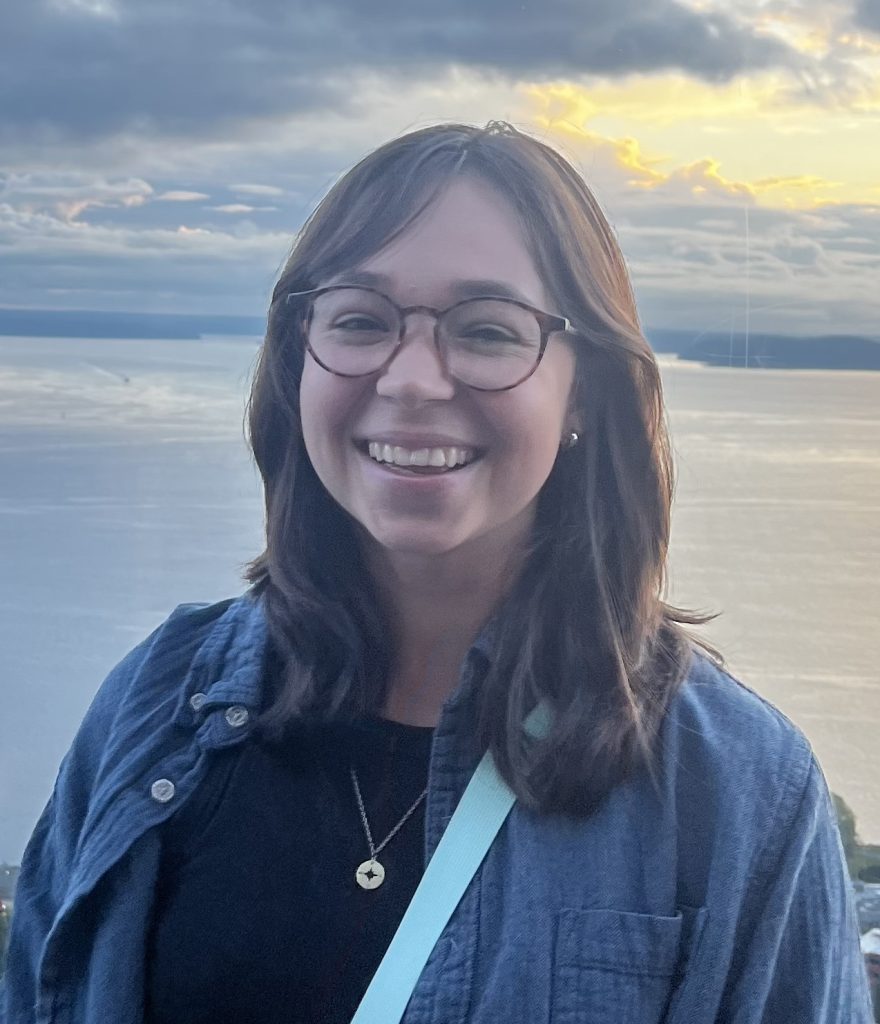Louise Chaplin: Outstanding Mentorship of a Student or Other Team Member in Sustainability Research

Louise Chaplin’s passion for Maine, the environment, and community developed during her childhood on Little Cranberry Island and Mt. Desert Island where she attended high school. By the time she was a teen, she was working as a youth boatbuilding instructor at Islesford Boatworks and helping her youth climate group pass emergency climate declarations in Bar Harbor and Mt. Desert.
In 2024, as she prepared to graduate with a bachelor’s degree in ecology and environmental science, Dr. Sharon Klein hired Chaplin as a research assistant. Working with Klein, the Mitchell Center, and the Governor’s Office of Policy Innovation and the Future (GOPIF), Chaplin helped research and publish a report about the representation of disadvantaged groups which was included in Maine’s climate action plan (Home | Maine Climate Plan). Like her youth climate work, the assistantship further anchored Chaplin’s belief in the power of collaboration.
“The Mitchell Center’s ongoing support of partnerships and their goal of lifting up the voices of the Tribal Nations and Maine people really aligned with the goals of the equity project and was a major reason why our partnerships were so successful. It was a perfect crossover between my interest in helping rural communities, helping disadvantaged people in Maine, talking about climate justice, and my interest in developing this into a career,” Chaplin said.
When the assistantship ended, Chaplin became a key member of several projects led by Klein. As part of UMaine’s $1.13 million U.S. Environmental Protection Agency’s grant, she is researching energy preferences in rural Maine communities. She’s also helping communities across the state apply for grants to help them with their renewable energy interests. Then, there’s her work with the Data-Driven Approaches for Secure Electric Grids in Communities Disproportionately Impacted by Climate Change (STORM) grant funded by the National Science Foundation.
Chaplin also serves as the outreach coordinator for the Maine community-led Energy and Climate Action Network (MAINECAN) — a network of communities and community-support groups working on energy and climate-related issues.
Klein’s teams are large, ranging from undergraduates to doctoral students. Some only work a few hours a week. Like the building of a wooden boat (Chaplin is now on the board at Islesford Boatworks), the implementation of large grant projects involves many pieces which Chaplin helps to keep organized and moving forward.
While she’s adept at scheduling, crafting technical reports, and facilitating meetings, what she loves best about her role is forming relationships: with students, professors, communities, and individuals.
Chaplin said, “When working with anyone, I always try to make the learning experience mutual and figure out problems together. I usually don’t have more experience or knowledge than the students on our research team, and we’re all learning together. So, solving problems together is usually the best solution.”
Sonia Leone, an undergraduate research assistant working with Chaplin, appreciates Chaplin’s leadership. “I’ve definitely learned a lot from her about communication, and her work ethic is just unmatched,” said Leone. Klein, the nominator for the award, concurs. “Her attention to detail, patience, intelligence, skills, and positive attitude are inspirational,” said Klein.
